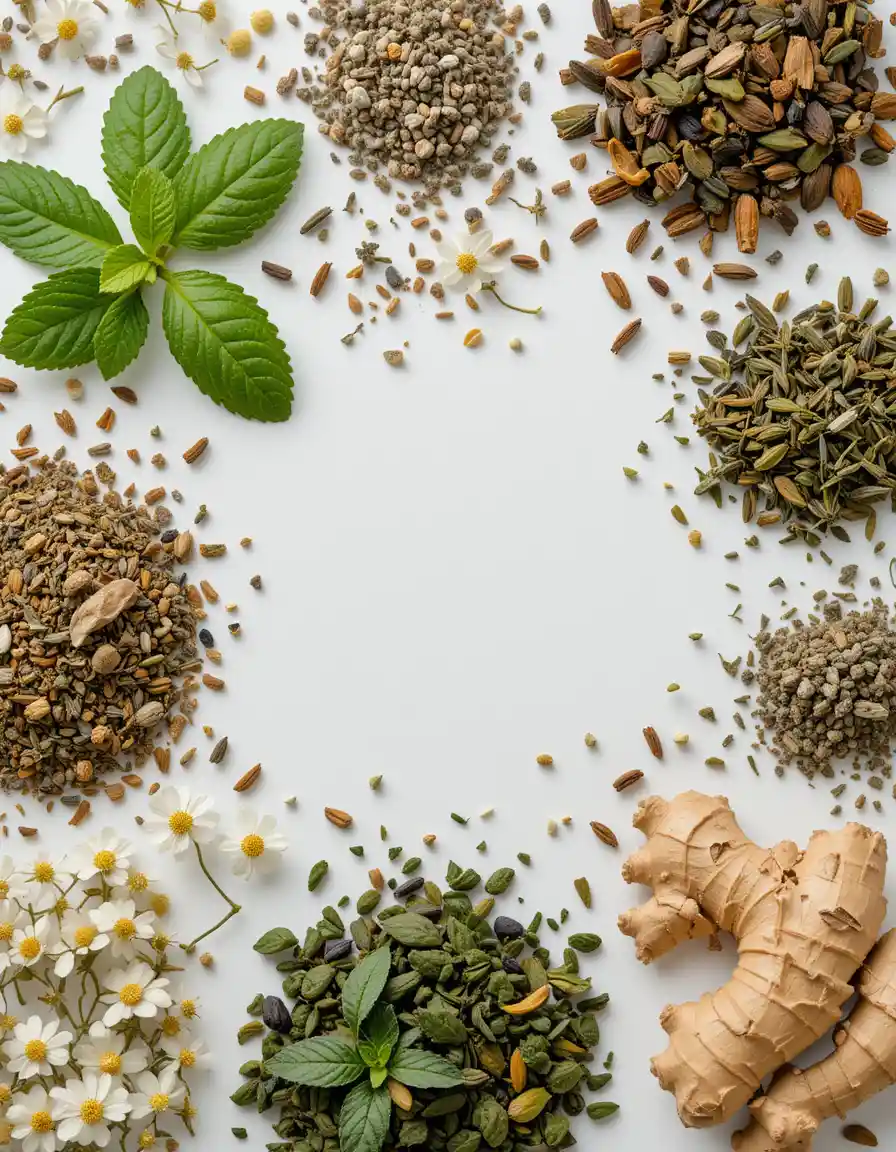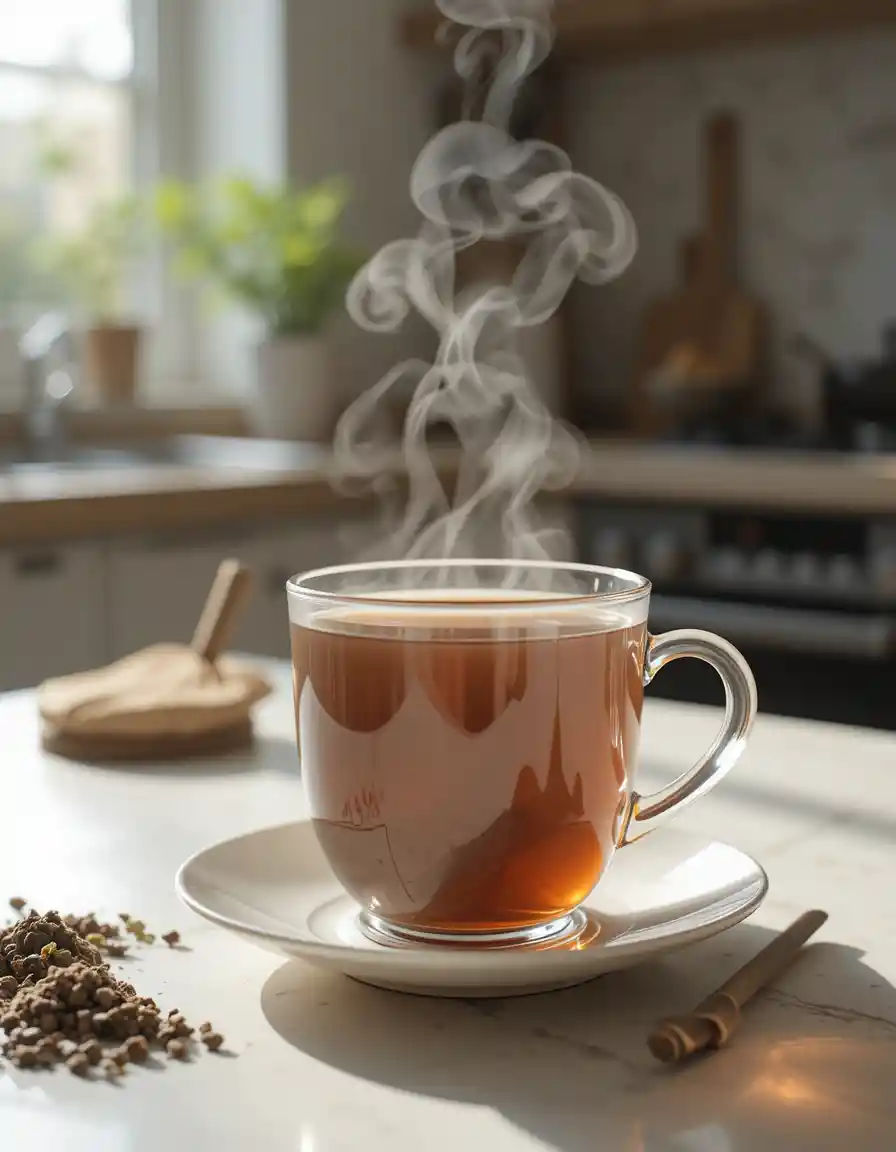Bariatric Tea
Bariatric Tea – Is This the Post-Surgery Game-Changer Everyone’s Talking About?
Have you ever heard of a tea that helps you lose weight after surgery? Yep, it’s called bariatric tea, and it’s becoming a buzzword in the world of post-op recovery and wellness. Whether you’re fresh out of bariatric surgery, on a liquid diet, or just looking for a gentle, no-fuss detox, this soothing brew might be just what your body needs.

So, what is bariatric tea exactly? It’s a specially crafted herbal or green tea blend made to support digestion, reduce bloating, and promote weight loss—without putting stress on your stomach. Think of it as a light, healing hug in a mug. Bariatric tea typically contains ingredients like ginger, peppermint, senna, or green tea extract, each carefully chosen for its digestive and detoxifying properties.
This tea isn’t just for folks recovering from gastric bypass or sleeve surgery. It can also work wonders for anyone on a pre-op or post-op diet plan, or even those who just want to jump-start a cleaner, healthier lifestyle without going to extremes.
**Stay tuned—**we’re about to dive into the real tea: the proven benefits of bariatric tea, the different types available, how to make the most of it, and a few situations when you should probably skip it.
Whether you’re curious, cautious, or completely new to the post-surgery world, this guide’s for you. Let’s spill the tea—bariatric style.
Table of Contents
Top Benefits of Bariatric Tea: Why It’s More Than Just a Drink
If you’ve recently gone through bariatric surgery—or you’re prepping for it—you know how crucial it is to treat your stomach right. That’s where bariatric tea comes in. It’s not just a warm beverage; it’s part of your post-op support system.
Here’s why so many people are making it part of their daily routine:
1. Soothes Your Tummy After Surgery
Let’s be real: after weight loss surgery, your stomach is healing, sensitive, and not ready for anything heavy. Bariatric tea often contains calming herbs like peppermint, ginger, or chamomile, known for reducing nausea, easing digestion, and relieving bloating. It’s like giving your gut a breather.
2. Supports Digestion & Reduces Bloating
A lot of folks struggle with sluggish digestion post-surgery. Sipping on tea with ingredients like fennel, lemon balm, or dandelion can help things move along naturally, without harsh laxatives. It’s a gentle nudge, not a full-on push.
3. Promotes Hydration Without the Sugar
Hydration is key after bariatric surgery, but are sugary drinks a good choice? Big no-no. Bariatric teas are typically caffeine-free or low-caffeine, providing flavorful hydration without the sugar crash. Plus, they’re usually low in acidity, making them easier on your new stomach.
4. Natural Appetite Control
Some blends include green tea extract, garcinia cambogia, or cinnamon—natural ingredients that can help curb your appetite a little. Of course, it’s not magic, but when paired with a solid diet plan, it can help keep those cravings in check.
5. Gentle Detox Support
Bariatric tea is often part of a soft detox program. Ingredients like senna, milk thistle, or dandelion root are used in moderation to help flush out excess water weight and toxins. It’s not about starving yourself—it’s about giving your body space to refresh.
6. Calming & Mood-Boosting
Post-op life comes with emotional ups and downs. The ritual of sipping warm tea can offer real comfort, while herbs like lemon balm or lavender may help ease anxiety or restlessness. It’s self-care in a cup.
Heads up: Not all bariatric teas are created equal. Coming up next, I’ll break down the most popular types of bariatric teas, what to look for on the label, and which ones might work best for your stage of recovery.

Top 7 Teas Bariatric Patients Swear By
When your stomach’s been through surgery, every sip counts. That’s why bariatric patients are raving about specific teas that not only soothe but also support recovery, digestion, and wellness. Whether you’re newly post-op or months down the road, these teas have your back — naturally.
Here are the top 7 teas folks in the bariatric community can’t stop talking about:
1. Peppermint Tea – For Nausea & Bloating Relief
You just had surgery, and your stomach’s flipping like crazy? Peppermint tea is your bestie. Known for its anti-spasmodic and soothing properties, it helps reduce gas, bloating, and post-op nausea. Many patients say it makes a noticeable difference in how they feel after meals.
🩺 Bonus: It may also help ease acid reflux — a common issue after bariatric procedures.
2. Ginger Tea – The Tummy Tamer
Ginger has been used for centuries to calm digestion. After gastric sleeve or bypass surgery, ginger tea can help relieve nausea, indigestion, and inflammation. Plus, it’s got a mild kick that feels like it’s waking your system up gently.
💬 Real Talk: Some bariatric patients keep ginger tea packets in their purse – it’s that effective.
3. Chamomile Tea – For Rest & Gut Healing
Chamomile isn’t just a bedtime tea. It’s also great for relaxing the digestive tract and easing stress. Post-surgery, your body and brain need all the rest they can get, and sipping chamomile helps do both, without any sugar, caffeine, or artificial stuff.
4. Green Tea (Decaf) – Antioxidants With Benefits
Want a tea that does a little of everything? Decaf green tea is loaded with antioxidants, supports fat metabolism, and helps fight inflammation. Just make sure it’s decaffeinated — caffeine can be harsh on a healing stomach.
⚠️ Note: Caffeine-free is usually safer during early post-op stages. Always check with your doc.
5. Fennel Tea – Digestion’s Secret Weapon
Fennel may not be on your radar yet, but it’s gold for digestion. It can ease gas pain, relieve constipation, and even help with cramping. Bariatric patients love it for those uncomfortable days when their stomach just feels “off.”
6. Dandelion Root Tea – A Gentle Detoxifier
Dandelion root is a natural diuretic and liver supporter. Many folks use it during liquid phases or when they feel bloated or backed up. It’s not a harsh detox, just a nudge in the right direction — especially helpful when your body’s adjusting to a new eating plan.
7. Licorice Root Tea – For Gut Protection
Licorice root (in moderation) helps coat the stomach lining and reduce acid irritation. Some blends include DGL (deglycyrrhizinated licorice), which is considered safer and more bariatric-friendly. It’s a lesser-known choice, but many post-op patients say it helps with heartburn and mild ulcers.
👉 Quick Tip: Always read the ingredients list! Some detox or weight-loss teas sneak in laxatives or high caffeine levels — not great for a healing stomach.
Each of these teas brings its soothing benefits to the table — whether you’re calming nausea, boosting digestion, or just taking a quiet moment for yourself. As someone who’s been through the bariatric journey (and brewed countless cups of these teas myself), I can tell you: the right tea can make a world of difference.
But here’s the deal — timing matters. Sip too soon or too late, and you might miss the benefits or even cause discomfort. So, when exactly should you drink tea after bariatric surgery? Let’s break it down in the next section.

Bariatric Tea: When to Drink It After Weight Loss Surgery
Bariatric tea can be a comforting and beneficial addition to your recovery plan—if you introduce it at the right time. Timing matters more than most people think, especially when your digestive system is healing from surgery. Knowing when and how to incorporate tea into your post-bariatric diet can support hydration, reduce discomfort, and even ease digestion.
Right After Surgery? Not Yet.
In the first 24 to 48 hours following surgery, your stomach is still very sensitive. That means no hot drinks, no caffeine, and no herbal detox teas—no matter how natural they claim to be. At this stage, the focus should be on clear, cool fluids like water and sugar-free electrolyte drinks to prevent irritation and promote healing.
Pro tip: Even warm herbal teas should be avoided during this window. Let your body rest and give your pouch time to adjust before adding anything new.
Week 1 to 2: Stick to Gentle, Caffeine-Free Teas
Once you’re allowed full liquids, usually around week one, you can slowly begin introducing caffeine-free tea options like chamomile, peppermint, or ginger. These herbal teas are mild, help with bloating, and can ease nausea, a common post-op issue.
Avoid green tea, black tea, or anything with caffeine at this point. Caffeine can dehydrate you and interfere with iron absorption, which is critical after surgery.
Week 3 to 4: Experiment with Variety—Cautiously
As you move into the soft foods stage, you can begin experimenting with a wider range of bariatric-friendly teas. Light rooibos or even decaf green tea might be tolerated, but always test slowly and monitor your body’s response. Some teas, even if mild, can trigger heartburn or acid reflux for sensitive stomachs.
Best Time to Drink Bariatric Tea
To get the most out of your tea without interfering with your meals, drink it between meals—either mid-morning or early afternoon. Avoid drinking tea during meals, as it can reduce stomach space and interfere with nutrient absorption. It’s generally best to wait about 30 minutes after eating before sipping your tea.
Understanding when to drink bariatric tea safely is key to maximizing its benefits. Now that you know the right timing, let’s take a closer look at the other side of the coin—when you should avoid tea altogether, and which ingredients might do more harm than good.

Bariatric Tea: What to Avoid – Not All Teas Are Created Equal
Bariatric tea can be a great support after weight loss surgery, but don’t be fooled into thinking all teas are safe or helpful. The wrong blend can irritate your new stomach, mess with your recovery, or even lead to serious discomfort. Let’s break down what to avoid so you don’t accidentally sip your way into trouble.
1. Caffeinated Teas – Too Harsh on a Healing Stomach
Even though green and black teas are often praised for their antioxidants, their caffeine content can cause dehydration, acid reflux, and interfere with nutrient absorption, especially iron and calcium. After bariatric surgery, your body is already adjusting, and adding stimulants like caffeine may only add fuel to the fire.
Stick to decaf or naturally caffeine-free options until your doctor gives the green light.
2. Detox and “Flat Belly” Teas – Marketing Over Safety
Detox teas might sound like a shortcut to weight loss, but they often contain strong laxatives or diuretics that can wreak havoc on a post-op digestive system. Ingredients like senna or cascara may lead to cramping, dehydration, or even nutrient loss.
After bariatric surgery, your goal should be gentle support, not pushing your system to the limit.
3. Artificial Sweeteners – Hidden Irritants
Some bariatric-friendly tea blends come pre-sweetened or suggest adding sugar-free syrups or powders. While these might seem innocent, certain artificial sweeteners like sucralose, sorbitol, or aspartame can cause bloating, gas, and discomfort, especially in sensitive post-op patients.
Choose plain herbal teas and add natural flavors like cinnamon sticks, fresh mint, or lemon peel if needed.
4. Teas with Acidic or Spicy Ingredients
Anything with citrus oils, cloves, or spicy herbs (like chai blends) may trigger heartburn or gastric distress—two things you want to avoid after surgery. Your stomach lining is still healing, and spicy or overly acidic ingredients can make things worse.
Always read the label. If it sounds bold or zesty, save it for much later.
When it comes to bariatric tea, it’s not just about what you should drink, but what you shouldn’t. Choosing the right tea can comfort and support your journey, while the wrong one can slow your recovery.

Can Bariatric Tea Help With Weight Loss? Let’s Be Real
Bariatric tea and weight loss often go hand in hand, but let’s get one thing straight: tea alone isn’t a miracle solution. That said, when used the right way, bariatric-friendly teas can absolutely support your weight loss journey, especially after surgery.
Here’s How It Actually Helps:
1. Encourages Mindful Eating
Sipping a warm cup of tea before or between meals can help you slow down, reset your hunger cues, and avoid overeating. It creates space to ask, “Am I really hungry or just thirsty or emotional?” That simple pause can make all the difference.
2. Reduces Cravings (Especially Late Night Ones)
Many bariatric patients struggle with sweet cravings in the evening. Herbal teas like cinnamon, licorice, or vanilla rooibos offer a naturally sweet flavor, without calories or sugar. Over time, that swap adds up.
3. Improves Digestion and Gut Health
Better digestion means better absorption of nutrients and less bloating—two important factors in sustainable weight loss. Teas with ginger, peppermint, or fennel can keep things moving and reduce discomfort that might otherwise slow you down.
4. Supports Metabolism Gently
While bariatric tea won’t spike your metabolism overnight, ingredients like green tea, oolong, or yerba mate may offer a mild thermogenic effect. That means they can help increase calorie burn when combined with a healthy lifestyle.
What You Shouldn’t Expect:
- No quick fixes – Bariatric tea won’t melt pounds away.
- No replacement for meals – It’s a complement, not a substitute.
- No overnight results – The magic is in consistency and balance.
So, can bariatric tea help with weight loss? Yes—when used as part of a smart, post-op routine that includes mindful eating, hydration, protein-rich meals, and movement.

DIY Bariatric-Friendly Tea Blends You Can Make at Home
One of the best things about bariatric tea is that you can totally make your blends right from your kitchen. Whether you’re fresh out of surgery or just trying to stay on track, crafting your tea ensures full control over the ingredients. No hidden sugars, no mystery herbs—just clean, soothing, and effective sips.
Why Go DIY?
- Save money – No need to buy overpriced detox teas.
- Customize flavors – Create blends that suit your taste and digestion.
- Stay clean – Avoid artificial additives and caffeine overload.
1. Ginger-Mint Soothing Blend
Best for: Nausea, bloating, and digestion support
What you need:
- 1 tsp dried peppermint leaves
- ½ tsp grated fresh ginger (or ¼ tsp ground ginger)
- 1 cup hot water
How to make it:
Steep everything in hot (not boiling) water for 5–7 minutes. Strain and sip slowly.
2. Chamomile-Lavender Sleep Tea
Best for: Relaxation, anxiety, post-op sleep trouble
What you need:
- 1 tsp dried chamomile flowers
- ½ tsp dried lavender buds
- Optional: 1 thin slice of lemon peel
How to make it:
Steep in warm water for 8 minutes. Inhale the aroma while it steeps—it calms your nerves before the first sip.
3. Lemon-Fennel Cleanse Blend
Best for: Light detox, gas relief, supporting digestion
What you need:
- 1 tsp crushed fennel seeds
- 2–3 slices of fresh lemon
- Pinch of turmeric (optional, for anti-inflammatory boost)
How to make it:
Boil fennel seeds in water for 2 minutes, then steep lemon and turmeric in it for another 5. Strain and serve warm.
4. Cinnamon-Vanilla Dessert Tea
Best for: Sugar cravings, emotional snacking
What you need:
- 1 cinnamon stick
- ½ tsp vanilla extract or vanilla bean scrapings
- Optional: 1 clove or star anise
How to make it:
Simmer cinnamon in water for 5 minutes, then stir in vanilla. Sweet, cozy, and guilt-free.
A Few Quick Tips:
- Always use caffeine-free ingredients post-op unless cleared by your doctor.
- Avoid adding sweeteners—natural flavors are more than enough.
- Use organic herbs if possible for purity and potency.
- Store your blends in airtight containers and label them.
Homemade bariatric tea blends give you the comfort of control and the joy of customization. Plus, they’re a great way to stay hydrated, feel nourished, and enjoy a mini ritual that supports your wellness goals.
👉 Next up: Frequently Asked Questions About Bariatric Tea – Let’s Clear Things Up
My Latest Recipes
Nutritional Information (Per Serving – Average Across Blends)
| Nutritional Info | Details |
|---|---|
| Preparation Time | 5 minutes |
| Cooking Time | 5–8 minutes |
| Total Time | 10–13 minutes |
| Type | Herbal Tea |
| Cuisine | Bariatric / Wellness / Clean Eating |
| Recipe Yield | 1 cup per blend |
| Calories (per serving) | 0–5 kcal |
Final Thoughts – My Take on Bariatric Tea
After experimenting with different bariatric tea blends and researching what really works post-surgery, I can honestly say this has been one of the gentlest yet most comforting parts of a bariatric lifestyle. Whether you’re sipping on a warm cup of peppermint tea to ease digestion or brewing a DIY detox blend, the right tea can make a real difference in how you feel day to day. It’s not just about weight loss — it’s about healing, hydration, and creating moments of calm in your new routine.
Thanks so much for sticking with me through this guide. I hope you found it both helpful and inspiring. If you’re navigating post-surgery life or just exploring healthy habits, be sure to check out my other wellness-friendly recipes and guides — there’s plenty more waiting for you.
👉 Ready for your next read? Explore more about liquid diet meal ideas, easy protein-rich smoothies, and low-calorie dessert options that actually taste good. Your journey deserves delicious support!
Related Recipes You Will Love
FAQ – Bariatric Tea Questions People Are Asking
1. What is bariatric tea, and is it safe after weight loss surgery?
Answer: Bariatric tea refers to herbal or non-caffeinated teas designed to support digestion, hydration, and weight loss after bariatric surgery. It’s safe when consumed in moderation and approved by your healthcare provider. Stick to caffeine-free blends in the first weeks post-op.
2. When can I start drinking tea after bariatric surgery?
Answer: Most patients can start sipping warm, non-caffeinated teas during the full liquid diet phase, usually within 1–2 weeks post-op. Always avoid hot drinks in the first few days and consult your surgeon before adding anything new.
3. What’s the best tea to drink after gastric sleeve surgery?
Answer: Great options include peppermint, ginger, chamomile, and green rooibos. These teas are easy on the stomach, help with digestion, and are naturally caffeine-free—perfect for your healing phase.
4. Can I drink iced bariatric tea, or should it always be hot?
Answer: Iced bariatric tea is totally fine! Just be sure it’s caffeine-free, low-acid, and not too cold in the first few weeks post-op, as your stomach might still be sensitive. Room temperature or lukewarm is usually better early on.
Share your thoughts or questions about the recipe in the comments below!






